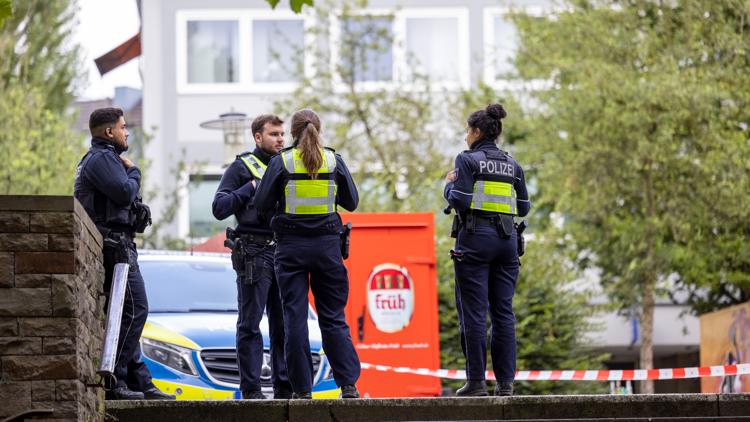The Solingen Knife Attack: A Tragic Incident at a Festival

On a Friday night, a festival celebrating the city’s 650th anniversary turned tragic in Solingen, Germany. Three people lost their lives, and eight others were wounded in a knife attack that shook the community to its core.
A 26-year-old Syrian man, Issa Al H., has been held on suspicion of murder and membership in a terrorist organization in connection with the incident. Federal prosecutors believe he shared the radical ideology of the Islamic State extremist group and acted upon those beliefs when he carried out the brutal stabbings.
The suspect turned himself in, confessing to the attack and claiming responsibility. He is also facing charges of attempted murder and serious bodily injury. His extremist views and intentions were clear when he targeted his victims at the festival, aiming to cause maximum harm to those he considered unbelievers.
The suspect, a Syrian citizen who sought asylum in Germany, had his asylum claim denied and was slated for deportation last year. The Islamic State group later claimed responsibility for the attack, stating that it was in retaliation for Muslims in Palestine and elsewhere.
The tragic incident has sparked debates on immigration ahead of regional elections in Germany. It has also raised questions about security measures and the rise of extremism in the country.
The attack plunged the city of Solingen into grief, as residents mourned the loss of lives and the senseless violence that marred the festival. The event, meant to celebrate diversity and unity, was abruptly canceled as authorities investigated the crime scene.
As the community grapples with the aftermath of the attack, one question lingers in everyone’s minds: why? The senseless violence has left many in shock and disbelief, as they struggle to make sense of the tragedy that unfolded on that fateful night.
Despite the decline of the Islamic State group in recent years, they continue to recruit members and claim responsibility for deadly attacks worldwide. Their influence may have waned, but their threat remains, as evidenced by the tragic events in Solingen.




